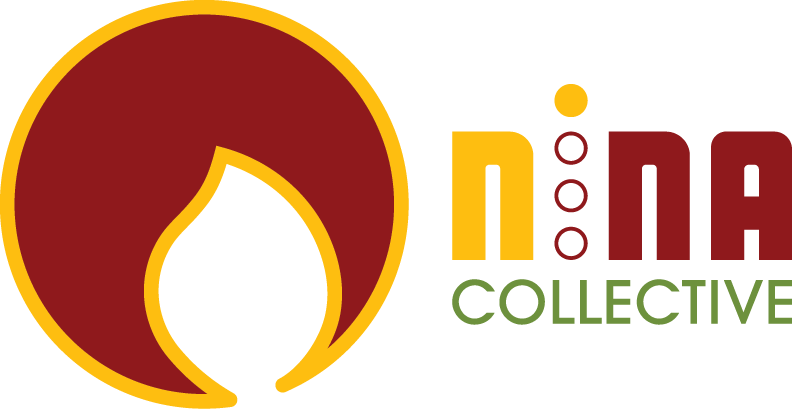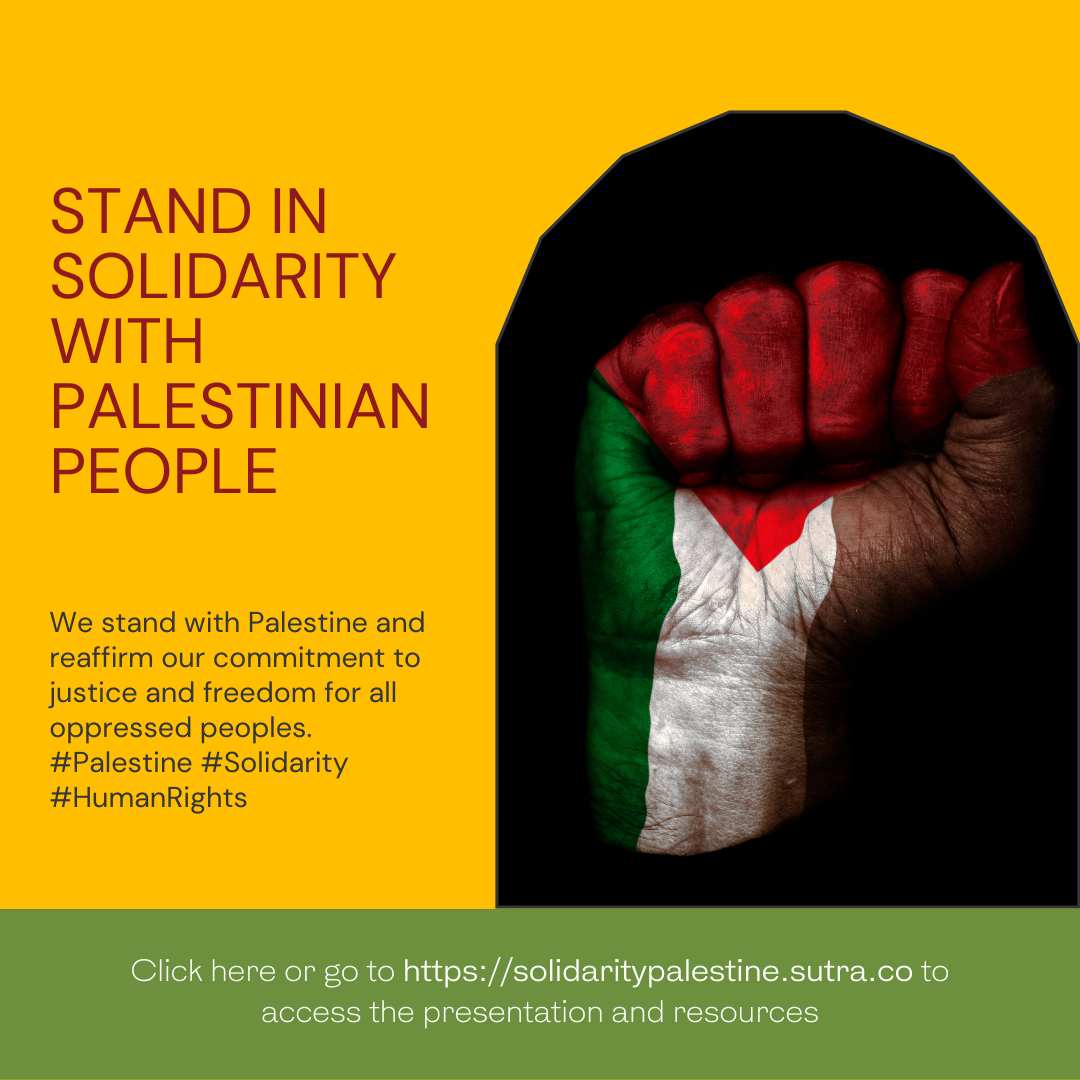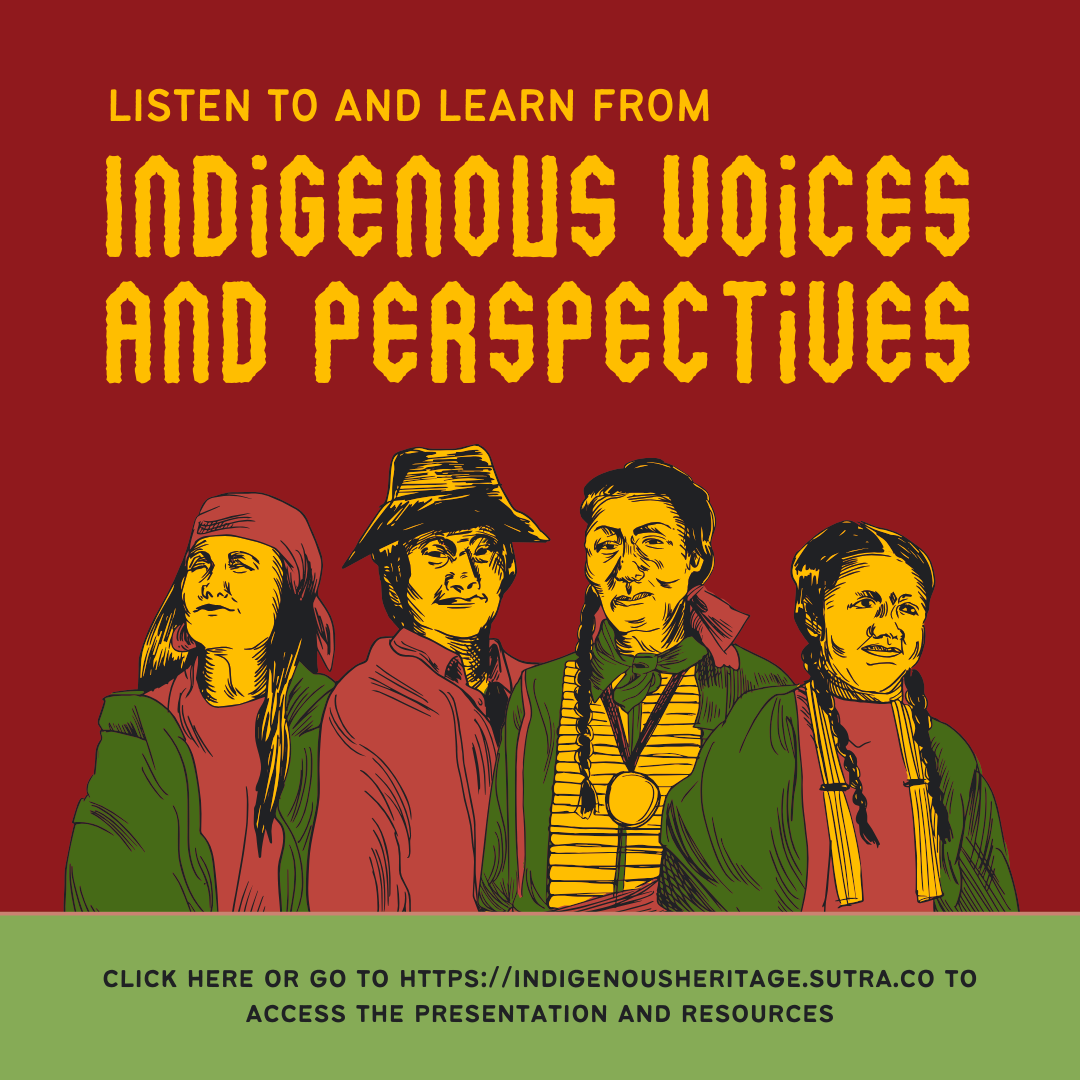What does it mean to Decolonize?
On the last day of Native American Heritage Month, and the day after the International Day of Solidarity with the Palestinian People, what does it mean to Decolonize?
At the nINA Collective, we host monthly Community of Practice sessions to learn and build community together. In October, we hosted Kamewanukiw Rabineaux of the Menominee Nation on Indigenous People’s Day. In November, we had a panel discussion focusing on Palestine with Othman Atta, Deanna Othman, and Mouna Algahaithi.
In both of these sessions, we were in a space of learning the difficult truths that haunt our history and our present day. At nINA, we are often in the position of being the bearers of difficult truth, but in these Communities of Practice, we engage our own discomfort while we bear witness.
It was impossible not to see the overlap between the two presentations. In both, we saw robust Indigenous communities forcibly displaced. The displacement was framed as righteous and good through stories which dehumanized and othered Indigenous communities, giving settlers a way to be seen as moral while committing atrocities.
In both instances, the contradiction was glaring. European settlers, who sought refuge from religious persecution by leaving their homeland in pursuit of freedom, transformed into persecutors themselves. Likewise, many Jewish survivors of the Holocaust and their descendants resettled in Israel, only to witness their government engaging in acts of genocide against Palestinians, conducted in their name.
To be clear, we honor the lives of Jewish people in Israel and around the world. We stand with organizations such as Jewish Voices for Peace, and we see them disrupting the narratives that serve only to kindle the fires of conflict. We believe we can honor their truth and humanity without dehumanizing others, and in fact, we must.
We certainly do not have all of the answers at nINA, but we are committed to finding and following truth, and that means learning, and listening, and grappling when new information that is in tension with our previously held beliefs or understandings. This is how we participate in decolonization. In order to disrupt the mental and psychological elements of genocide and colonization that live in us, we must be willing to inspect old ways of thinking and to leave behind what is not aligned with our values.
What narratives live in your head that are not based on your personal experience?
What stories do you believe without critical reflection?
How can you excavate those stories and narratives so you can be more intentional about what you keep and what you pass on?
If you are interested in joining us in decolonizing your thoughts and ways of being, you can click below to view the presentations and resources on Sutra (our virtual platform). When you hear something or read something that makes you feel defensive, stay there. Ask yourself, what if this is true? What does that mean to me? Challenge yourself and be patient with yourself.
“Not everything that is faced can be changed, but nothing can be changed until it is faced” James Baldwin
Check out the link below to purchase books from our bookshop. Proceeds raised this month will go to the Waking Women Healing Institute.


